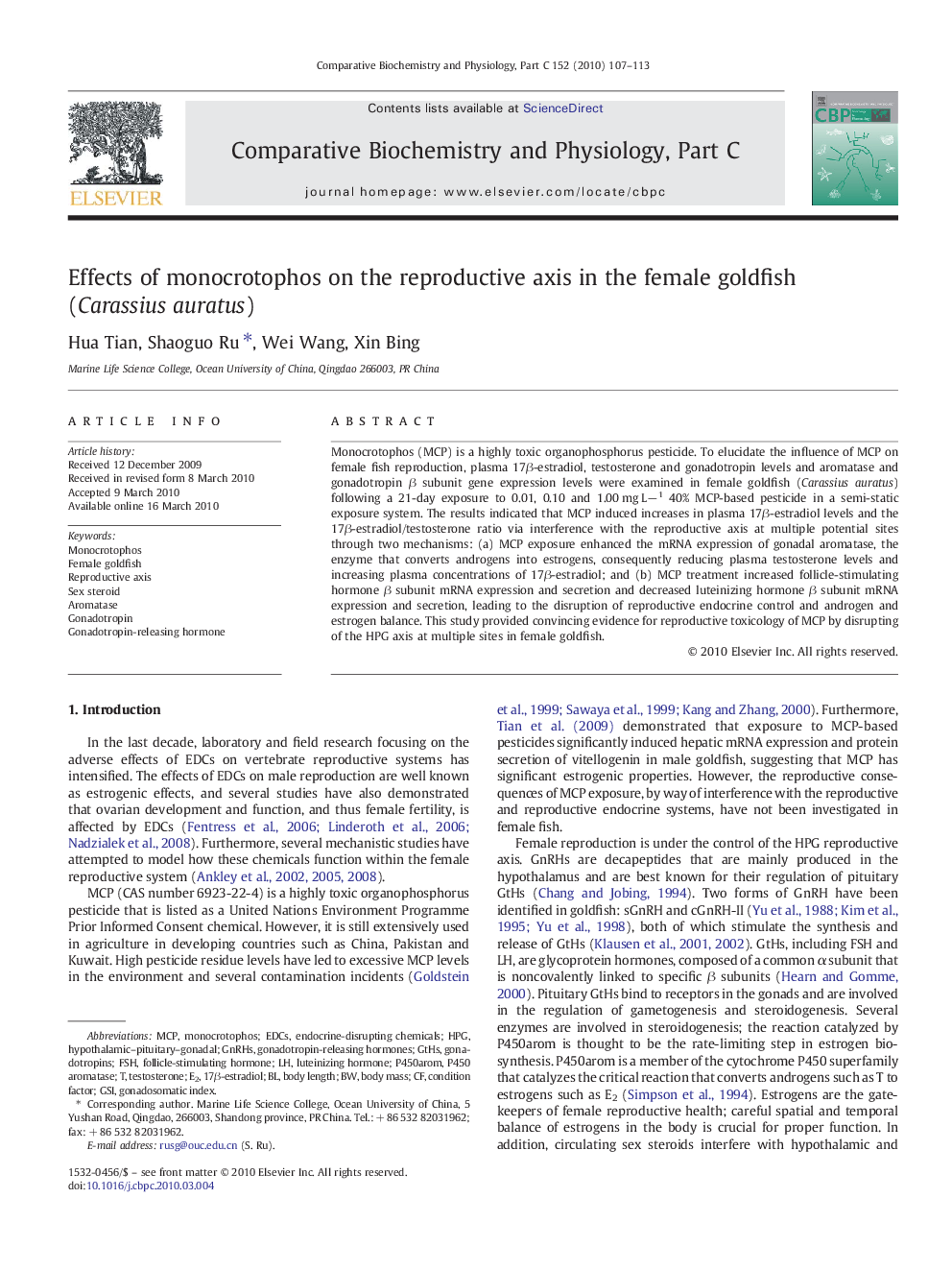| Article ID | Journal | Published Year | Pages | File Type |
|---|---|---|---|---|
| 1977483 | Comparative Biochemistry and Physiology Part C: Toxicology & Pharmacology | 2010 | 7 Pages |
Abstract
Monocrotophos (MCP) is a highly toxic organophosphorus pesticide. To elucidate the influence of MCP on female fish reproduction, plasma 17β-estradiol, testosterone and gonadotropin levels and aromatase and gonadotropin β subunit gene expression levels were examined in female goldfish (Carassius auratus) following a 21-day exposure to 0.01, 0.10 and 1.00 mg Lâ1 40% MCP-based pesticide in a semi-static exposure system. The results indicated that MCP induced increases in plasma 17β-estradiol levels and the 17β-estradiol/testosterone ratio via interference with the reproductive axis at multiple potential sites through two mechanisms: (a) MCP exposure enhanced the mRNA expression of gonadal aromatase, the enzyme that converts androgens into estrogens, consequently reducing plasma testosterone levels and increasing plasma concentrations of 17β-estradiol; and (b) MCP treatment increased follicle-stimulating hormone β subunit mRNA expression and secretion and decreased luteinizing hormone β subunit mRNA expression and secretion, leading to the disruption of reproductive endocrine control and androgen and estrogen balance. This study provided convincing evidence for reproductive toxicology of MCP by disrupting of the HPG axis at multiple sites in female goldfish.
Keywords
GSIMCPP450aromGnRHsHPG17β-estradiolEDCsP450 aromatasearomataseSex steroidtestosteroneBody massgonadosomatic indexbody lengthCondition factorReproductive axisEndocrine-disrupting chemicalsMonocrotophosGonadotropin-releasing hormonefollicle-stimulating hormoneluteinizing hormoneFSHhypothalamic–pituitary–gonadalGonadotropingonadotropins
Related Topics
Life Sciences
Biochemistry, Genetics and Molecular Biology
Biochemistry
Authors
Hua Tian, Shaoguo Ru, Wei Wang, Xin Bing,
